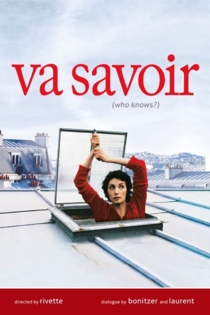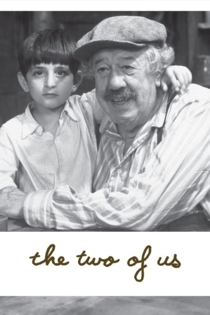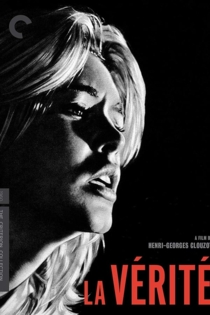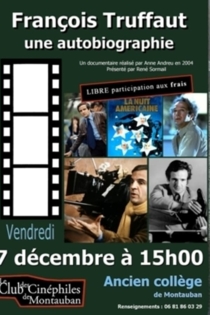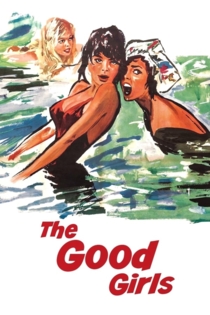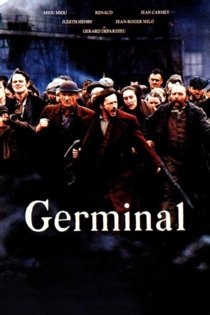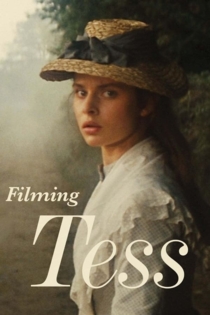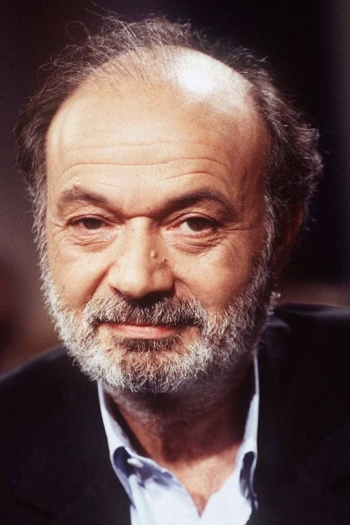
Claude Berri
1934 - 2009Born Claude Beri Langmann in Paris, Berri was the son of Jewish immigrant parents. His mother, Beila (née Bercu), was from Romania, and his father, Hirsch Langmann, was a furrier from Poland. His sister was the screenwriter and editor Arlette Langmann.
Berri won the "Best Film" BAFTA for Jean de Florette, and was also nominated for twelve César Awards, though he never won. Berri also won the Oscar for Best Short Film for Le Poulet at the 38th Academy Awards in 1966, and produced Roman Polanski's Tess which was nominated for Best Picture in 1981.
Internationally, however, two films in 1986 overshadow all his other achievements. Jean de Florette and its sequel Manon des Sources were huge hits. In 1991, his film Uranus was entered into the 41st Berlin International Film Festival. Six years later, his film Lucie Aubrac was entered into the 47th Berlin International Film Festival.
In 2003, he was elected President of the Cinémathèque Française where he obtained enough state subsidies to cover the costs of its resurgence at its new site in the rue de Bercy.
Berri's wife, Anne-Marie Rassam, committed suicide in 1997, jumping from the apartment of Isabelle Adjani's mother. Berri and Rassam had two children: actor Julien Rassam and actor and film producer Thomas Langmann.
Berri died of a stroke, in Paris, aged 74. After his death, a group of nine works by Robert Ryman, Ad Reinhardt, Giorgio Morandi, Richard Serra and Lucio Fontana was promised to the Centre Pompidou in Paris in lieu of tax. But the heirs of the film director finally sold them through French art dealer Philippe Ségalot for about €50 million to Qatar.
Source: Article "Claude Berri" from Wikipedia in English, licensed under CC-BY-SA 3.0.
Jean de Florette
Claude Berri
Yves Montand, Gérard Depardieu
In a rural French village, an old man and his only remaining relative cast their covetous eyes on an adjoining vacant property. They need its spring water for growing their flowers, and are dismayed to hear that the man who has inherited it is moving in. They block up the spring and watch as their new neighbour tries to keep his crops watered from wells far afield through the hot summer. Though they see his desperate efforts are breaking his health and his wife and daughter's hearts, they think only of getting the water.
Jean de Florette
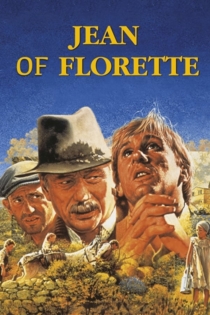
Manon of the Spring
Claude Berri
Yves Montand, Daniel Auteuil
In this, the sequel to Jean de Florette, Manon has grown into a beautiful young shepherdess living in the idyllic Provencal countryside. She plots vengeance on the men who greedily conspired to acquire her father's land years earlier.
Manon of the Spring
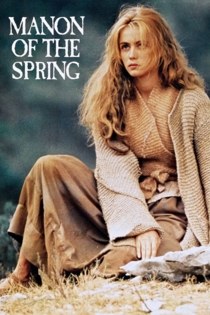
So Long, Stooge
Claude Berri
Coluche, Agnès Soral
In Paris XVIIIth district, Lambert works the night shift at a gas station, rarely speaking, living alone, drinking. One day comes a half-jewish half-arab small-time crook in dire straits, pushing a Moped. Named Bensoussan, he takes refuge at the station pretending he needs a spark plug. The two men become friends.
So Long, Stooge
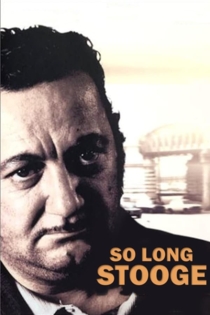
The Sleeping Car Murder
Costa-Gavras
Jacques Perrin, Catherine Allégret
Six people travel by train overnight from Marseilles to Paris. When the train arrives at its destination, one of the passengers, a girl, is found dead in a sleeping berth. The police led by Inspector Grazzi investigate the other five passengers, suspecting that one of them was responsible. However, as the investigation is stepped up, the other passengers start turning up dead. It is then up to the last remaining two to solve the case, before they become the next victims.
The Sleeping Car Murder
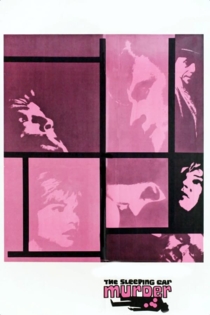
La ligne de démarcation
Claude Chabrol
Jean Seberg, Maurice Ronet
Line of Demarcation. is a 1966 film written and directed by Claude Chabrol. Its title in French is La Ligne de démarcation. It is based on upon the memoir Mémoires d'un agent secret de la France libre et La Ligne de démarcation by Gilbert Renault under his pseudonym Colonel Rémy. A small village in the Jura is split by the river Loue which creates the line of demarcation between Nazi occupied France and freedom. A French officer, Pierre (Ronet), is released by the Nazi soldiers to find his chateau converted into a German command centre. Whilst he is obliged to co-operate with the enemy, his wife Mary (Seberg) supports the resistance movement and is willing to risk her life for it. The Nazis step up their activity against the resistance, insisting that any who attempt to cross the line of demarcation will be shot. When his wife is arrested, Pierre decides to switch his allegiance.
Line of Demarcation
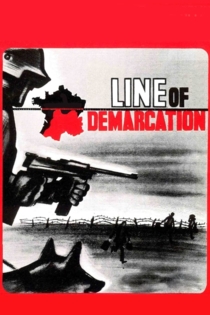
Uranus
Claude Berri
Michel Blanc, Gérard Depardieu
After World War II, a small French village struggles to put the war behind as the controlling Communist Party tries to flush out Petain loyalists. The local bar owner, a simple man who likes to write poetry, who only wants to be left alone to do his job, becomes a target for Communist harassment as they try and locate a particular loyalist, and he pushes back.
Uranus
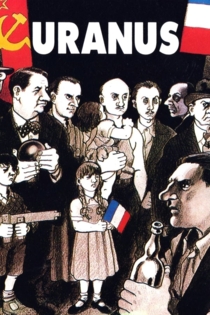
Zazie dans le Métro
Louis Malle
Catherine Demongeot, Philippe Noiret
A brash and precocious ten-year-old comes to Paris for a whirlwind weekend with her rakish uncle. He and the viewer get more than they bargained for, however, in this anarchic comedy that rides roughshod over the City of Light. Based on a popular novel by Raymond Queneau that had been considered unadaptable, the audacious Zazie dans le Métro, made with flair on the cusp of the French New Wave, is a bit of stream-of-consciousness slapstick, wall-to-wall with visual gags, editing tricks, and effects.
Zazie dans le Métro
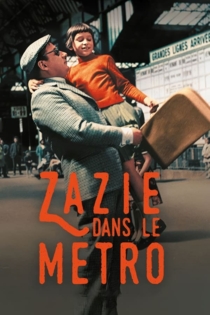
Le Poulet
Claude Berri
Jacques Marin, Viviane Bourbonneux
The Chicken [Le Poulet] is a 1965 French short comedy film directed by Claude Berri. The film follows a father, mother, and son who go to visit a chicken farm. The son catches and brings home a chicken. The father plans to eat it if the chicken doesn't lay eggs. The boy aims to save the chicken and comedy ensues. It won an Oscar in 1966 for Best Short Subject.
The Chicken
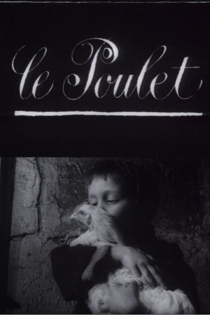
Va Savoir (Who Knows?)
Jacques Rivette
Jeanne Balibar, Marianne Basler
After finding love and success in Italy, French actress Camille returns to Paris, the city she fled three years ago. She secretly dreads confronting her ex-boyfriend Pierre. Her new lover Ugo also has a secret, as he’s meeting with the intriguing Dominique while on his quest for an unpublished manuscript.
Va Savoir (Who Knows?)
